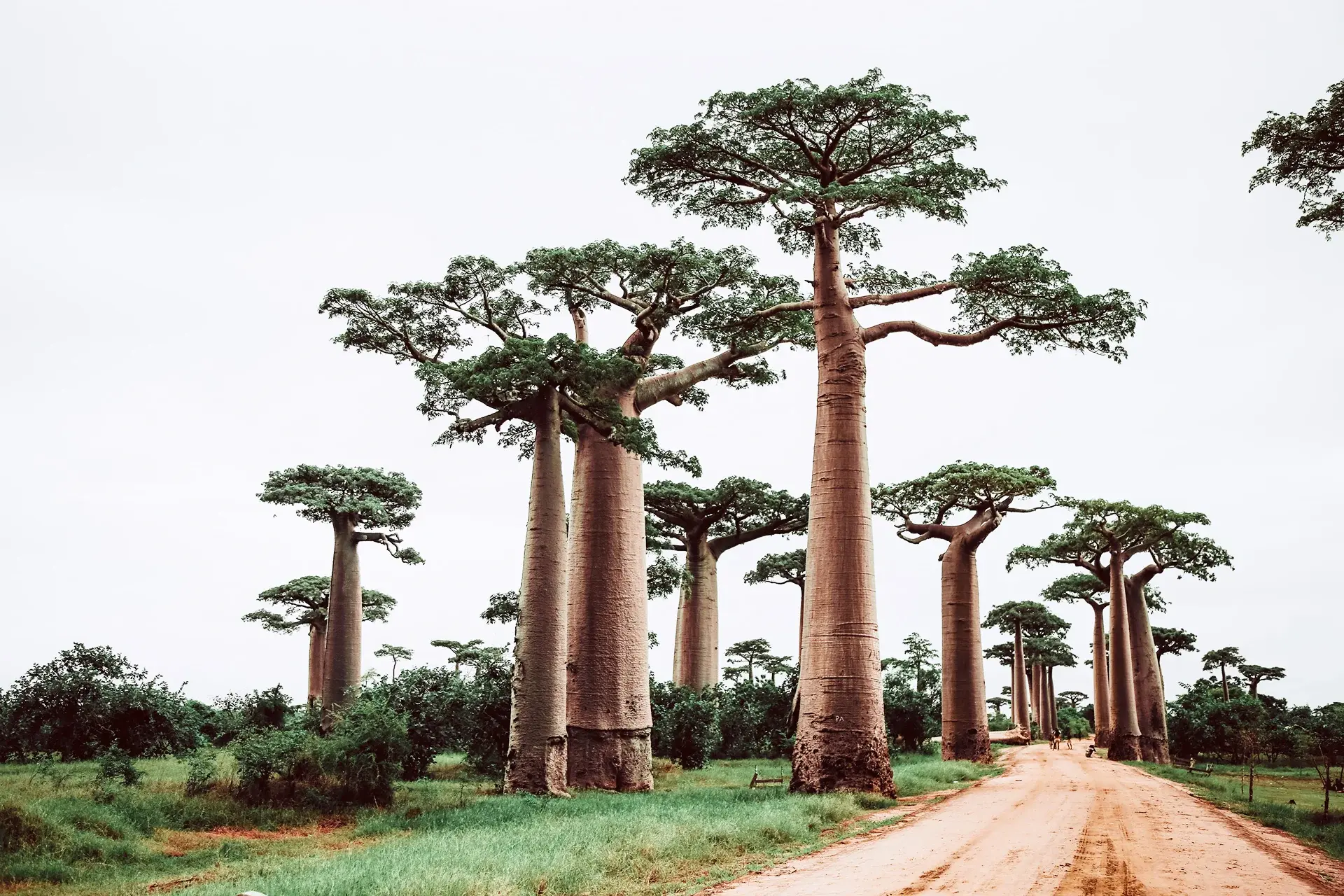
Easily manage employment in Madagascar
Make employment in Madagascar easy. Let us handle payroll, benefits, taxes, compliance, and even stock options for your team in Madagascar, all in one easy-to-use platform.
- Available Products
-
Contractor Management
- Overview
-
Grow your team
- Overview
- Grow your team
Employing in Madagascar
Workers' rights in Madagascar are protected by:
- The Malagasy Constitution of 2010
- The Labor Code, i.e. Law No. 2003-44 of 2004
— all of which guarantee equal pay for equal work, the right to individual and collective labour disputes, safe working environments, and protections against discrimination based on age, religion, and race.
Common questions from local candidates during the hiring process will often involve minimum wage, overtime rates, healthcare benefits, and guaranteed paid time off. Remote can help you offer a complete, competitive, and compliant benefits package to your employees in Madagascar.
Madagascar’s minimum wage is fixed at MGA 168,089 ($42.18) per month for general workers and MGA 170,442 ($42.77) for agricultural employees.
Competitive benefits package in Madagascar
Facts & Stats
Madagascar is the world’s fourth largest island & it’s home to a vibrant collection of flora & fauna that doesn’t exist anywhere else on the planet. Think lemurs (remember King Julien from Penguins of Madagascar? ), aye-ayes, sifakas, and even the Malagasy giant rat. Add to that exotic palms, frogs, geckos, and chameleons and amazingly, 9% of all species live only in Madagascar.
This natural diversity should make Madagascar a compelling tourist destination. However, life on the island is not as idyllic as the crystal blue waters suggest. Sadly, Madagascar is one of the poorest countries in Africa and with more than half of the 28 million population living in poverty according to .
The country has a comparatively high crime rate, and the supporting infrastructure is not advanced. Internal travel is difficult because of poorly surfaced roads, flights are expensive and limited to select international ports, and many international visitors stick to guided tours or beach resorts. Corruption, unrest, and violence can be a problem in the country, especially in the capital.
However, the local Malagasy people are known for their warmth and kindness. Doing business in Madagascar can prove challenging and the island is not a comfortable option for a digital nomad but there are expats and global businesses operating (mainly in the textiles, mining, and agriculture industries).
Antananarivo
Malagasy ariary
Malagasy, French
28,427,328
Below average
20%
3.50%
Grow your team in Madagascar with Remote
You can pay contractors now in Madagascar with Remote in some currencies (talk to a Remote expert now for more details).
Note that we are busy developing our EOR product to legally operate in Madagascar and provide you with the best possible experience for your team, but we are not yet ready to employ in Madagascar.
Companies hiring in Madagascar are typically required to either own a legal entity in the country or work with a global employment solutions provider to employ on the company's behalf. Developing the processes required to manage payroll, benefits, taxes, and onboarding in countries like Madagascar can get complicated fast, especially without localized expertise. If you’re looking to start hiring in a country like this, using a global HR platform like Remote makes it easy to hire workers in full compliance with all local legislation. In the countries where we do offer our Employer of Record product, Remote takes on responsibility for compliance so you can focus on hiring great talent and growing your business.
Madagascar, like many other countries, treats self-employed individuals or contractors and full-time employees differently. Misclassification of contractors in Madagascar may lead to fines and penalties for the offending company.
Transparent Pricing in Madagascar
- Powerful, transparent international payroll
- Simple self-service platform
- Personalized support from dedicated specialists
- Adhere to local payroll regulations in every country
- Integrated payroll, expense management, and HRIS solution
- Only pay for contractors you actively work with
- Work with international contractors
- Create, edit, and sign tailored, localized contracts
- Approve contractor invoices with one click or auto-pay
- Transparent payments with complete visibility
- Hire without opening a local entity in 90+ countries
- Onboarding with a dedicated specialist
- Local payroll paid on time, every time
- Compliance protections built-in
- Competitive, flexible and localized benefits
- Dedicated in-house experts for local support
- Includes HR Essentials as standard
%20Logos%20Library/(Approved)%20Trust%20symbols/lg-xs-g2-reviews-book-demo.webp?width=112&height=114&name=lg-xs-g2-reviews-book-demo.webp)
%20Logos%20Library/(Approved)%20Trust%20symbols/lg-xs-trustpilot-reviews-book-demo.webp?width=122&height=114&name=lg-xs-trustpilot-reviews-book-demo.webp)
%20Logos%20Library/(Approved)%20Trust%20symbols/lg-xs-capterra-reviews-book-demo.webp?width=118&height=114&name=lg-xs-capterra-reviews-book-demo.webp)
%20Illustration%20Library/051-check-star-stamp.webp?width=132&height=128&name=051-check-star-stamp.webp)